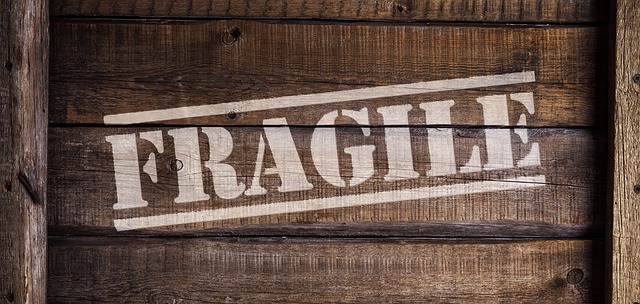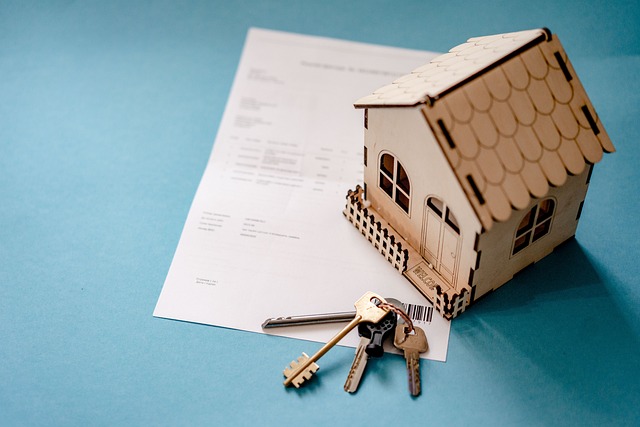There’s no getting away from the fact that moving home is an expensive business.
Putting aside the cost of the property and the Stamp Duty, there are many other expenses associated with buying and selling houses, and many people are looking to move on the cheap.
It’s estimated that in the UK the average person spends around £12,000 moving home when you factor in the cost of a removal company, conveyancing fees and estate agent’s commission.
However, it’s possible to make some considerable savings by moving home cheaply using the following tips.
What is the cheapest way to move house in the UK?
Here are some top tips to reduce moving costs and move cheaply:
1. Move without an estate agent
One of the cheapest ways to move home is to do it without an estate agent.
Their fees – often between 1.5% to 2.5% of the sale price – account for a huge portion of the costs of moving house.
It’s possible to sell your home much more cheaply by using an online service such as Purplebricks.
You’ll potentially save thousands of pounds in the process but you’ll have to do a lot more of the leg work yourself, such as conducting your own viewings, if you opt for the cheapest package.
This may not be for everyone, and you won’t benefit from an estate agent’s local knowledge and connections, but it could save you a packet if you’re prepared to do it.
2. Negotiate with the estate agent
If you do go down the estate agent route, it’s cheaper to instruct a sole agent rather than multiple agents.
Also, you should always negotiate with estate agents over their fees.
If your house is in a popular area and well-presented you’ll be surprised at how much an agent will drop their percentage to secure the business.
You shouldn’t feel inhibited about doing this – estate agents negotiate all the time and they’re well prepared for you do so as well.
3. Move on a Sunday
According to reports just 5% of movers choose Sunday as their moving day.
This means that if you can move on this day it’ll be easier and cheaper to book a removal company.
But for many people, moving on a Sunday isn’t ideal.
In the UK, Friday is the most popular day to move house as most people want the weekend to sort out their new home before heading back to work.
If Sunday doesn’t work for you, then the next cheapest days are on a Monday or Tuesday.
4. Hire a van and move yourself
A large part of the cost of moving house is hiring a home removals company to do the heavy lifting for you.
Depending on the size of your house and the distance you’re moving, this can end up costing well in excess of £1,000.
However, you can do it yourself by gathering some friends and hiring a van (or even two).
Providing you can physically move your heavier furniture and fit it in the van, you can save a hefty sum by doing the hard work yourself.
You’ll need to factor in fuel costs as well (and pizza for the ‘workers’ at the end of the day!), but it can still work out much cheaper to move this way.
5. Get several quotes from removal companies
If you do decide to hire professional house movers, it’s a good idea to get several quotes in advance rather than going for the first one.
The chances are you’ll be able to get a cheaper quote this way, and you also might be able to negotiate on the cost if you’re happy to move at a less popular time.
According to the Home Owners Alliance, January is the least popular month of the year to move, with August being the most popular.
Also, you should make sure everything is organised for moving day. If there are delays or problems, your home removal company may charge you extra for the inconvenience.
6. Do your own packing
Many removal companies offer a packing service as part of their service, but while it might save you some stress it comes at a significant cost.
Packing yourself can save hundreds of pounds and also give you the opportunity to declutter and get rid of all the junk you’ve been holding onto.
You’ll need to factor in the cost of packing materials, but you can save money by collecting old clothes and newspapers in advance which you can use to protect your precious possessions.
Other useful packing materials include towels, sheets and bubble wrap that you can collect from the deliveries you get in the run up to your moving date.
Also, ask friends and family to save all their cardboard boxes, and visit your local supermarket to see if they’ve got any going spare.
7. Cut your legal fees
Hiring a conveyancing solicitor is an essential – but costly – part of the home moving process.
However, did you know that you can save a significant amount on your legal fees by hiring a dedicated conveyancer rather than one that also acts as a solicitor?
According to Phil Spencer, of Location, Location, Location fame, choosing a dedicated conveyancer over a trained solicitor can save up to 25% on the fee, even though they do the same job when it comes to the legal work involved in buying and selling property.
Remember to research conveyancer’s thoroughly and check out online reviews before parting with your cash.
8. Clean your home yourself
Most people like to leave their home clean and tidy ready for its next occupants but it’s often easier to outsource this chore than do it yourself.
However, you could save hundreds of pounds by rolling up your sleeves and tackling the cleaning.
If you plan in advance, you could do it in bite-sized chunks to make it a more manageable job alongside everything else you’ll need to do as part of the moving process.
Hiring a cleaner is obviously easier, but if you’re looking to cut costs and move on the cheap then this is another job you can easily do yourself.
You should also consider carrying out any minor repairs rather than employing a tradesperson, if they form part of the contract.
9. Declutter and sell furniture and appliances
You can ease the burden of moving costs by selling unwanted furniture, appliances and even clothes as part of the decluttering people often do when they move home.
Not only will you make some extra cash to help cover your moving costs, but you’ll reduce the amount of things to pack, and potentially save money on removal costs if fewer lorries are needed for the job.
Facebook marketplace and eBay are two places to consider when selling your unwanted items, or you could book a stand at a local car boot sale.
If you can’t sell your unwanted items consider advertising them on a giveaway site like Freecycle, or even donating them to charity.
10. Plan ahead
Careful planning can save you a bundle when it comes to moving house as it’ll help you avoid any unexpected costs.
If you’re employing other people to help you move, ensuring that their job is completed in the allocated hours is crucial to saving money.
Also, having to buy things at the last minute is a sure-fire way to spend more, as you won’t have time to shop around for the best deals.
As soon as you’ve decided to move you should start the planning process, and remember: negotiate over everything – if you don’t ask, you don’t get!
You’ll be surprised at who’ll be willing to negotiate over their fee if it means securing the work.
Is it cheaper to move house yourself?
It’s definitely cheaper to do a DIY move, but for many people it’s not practical and may contribute to the stress of the moving process.
People who work full-time, have busy lifestyles or children may not find it possible to pack all their possessions, hire a van, load it and drive it to their new home, or clean their entire house.
You can save a lot of money by moving yourself, but whether it’s worth the stress and extra aggravation will depend on your individual circumstances.
Another thing to consider when moving house cheaply is buying a property at auction. You can often get a better deal than if you go through a high street estate agent.
You might also like:











